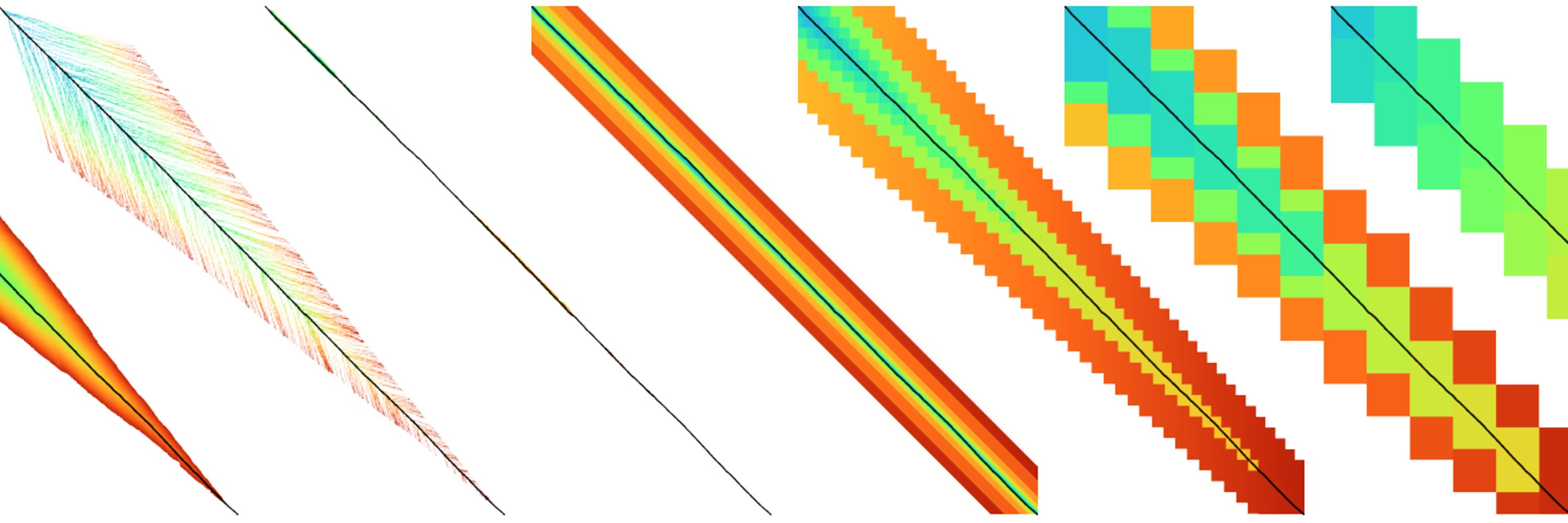
IMO, ICPC, Xoogler, Rust, road-cycling, hiking, wild camping, photography
Currently wishing I could write `Rank
Rank
internals.rust-lang.org/t/pre-rfc-us...
internals.rust-lang.org/t/nameable-f...

Currently wishing I could write `Rank
Rank
internals.rust-lang.org/t/pre-rfc-us...
internals.rust-lang.org/t/nameable-f...
My little `f(x) { prefetch(x); yield; compute(x); }` benchmark is ~8ns per call with explicit prefetching in a loop, and ~9ns per call when using coroutine abstractions :)
(I first spent a full day struggling with async, which I only got down to 14ns with much pain.)


My little `f(x) { prefetch(x); yield; compute(x); }` benchmark is ~8ns per call with explicit prefetching in a loop, and ~9ns per call when using coroutine abstractions :)
(I first spent a full day struggling with async, which I only got down to 14ns with much pain.)

Grep mode shows all matches, grouped per record, and is meant for human consumption.
Filter mode prints full matching (or non-matching) records to stdout or output files.

Grep mode shows all matches, grouped per record, and is meant for human consumption.
Filter mode prints full matching (or non-matching) records to stdout or output files.
curiouscoding.nl/posts/alg-viz/

curiouscoding.nl/posts/alg-viz/
(Turns out wide's `transmute([X; 8])` into `[u32x4;2]` has very bad codegen that prevents inlining and loop hoisting 😭)

(Turns out wide's `transmute([X; 8])` into `[u32x4;2]` has very bad codegen that prevents inlining and loop hoisting 😭)
(Whereas comparing 8-bit sketches loses some information, because if two 8-bit values differ in the first bit, the other 7 are unused.)

(Whereas comparing 8-bit sketches loses some information, because if two 8-bit values differ in the first bit, the other 7 are unused.)
- Up to 4x slowdown for negative queries due to probing.
- Positive queries are fast for small tables, but slow in RAM because they need 2 cache misses.
Lots of variance depending on the load factor, ie whether n is close to 87.5% of a power of 2.

- Up to 4x slowdown for negative queries due to probing.
- Positive queries are fast for small tables, but slow in RAM because they need 2 cache misses.
Lots of variance depending on the load factor, ie whether n is close to 87.5% of a power of 2.
Goodbye 40GB (10% of disk) of `perf.data` files.

Goodbye 40GB (10% of disk) of `perf.data` files.


I'm consistently annoyed by a short near-flat sections throwing off otherwise 10% averages.

I'm consistently annoyed by a short near-flat sections throwing off otherwise 10% averages.
This grant will allow me to develop fundamental rust libraries for bioinformatics. This will have great impact, with the goal of reaching a bus factor of 1 for the entire ecosystem. Then, there will be no way not to make me a PI.
Am I doing this right?

This grant will allow me to develop fundamental rust libraries for bioinformatics. This will have great impact, with the goal of reaching a bus factor of 1 for the entire ecosystem. Then, there will be no way not to make me a PI.
Am I doing this right?


www.youtube.com/watch?v=NUUF...
Great talk though :)

www.youtube.com/watch?v=NUUF...
Great talk though :)




But better! If the data is random we can instead do interpolation search, for log(log(log(n))) insertions.
Don't you love it?

But better! If the data is random we can instead do interpolation search, for log(log(log(n))) insertions.
Don't you love it?
curiouscoding.nl/posts/three-...

curiouscoding.nl/posts/three-...
Why can't you make it easy for me to use DOI2BIB?

Why can't you make it easy for me to use DOI2BIB?
Basically: on each pop, do just enough quicksort to find the smallest element.
My implementation (the 1st??) is 2x to 4x faster than d-ary and binary heaps.
curiouscoding.nl/posts/quickh...

Basically: on each pop, do just enough quicksort to find the smallest element.
My implementation (the 1st??) is 2x to 4x faster than d-ary and binary heaps.
curiouscoding.nl/posts/quickh...
-- Optimal Incremental Sorting, Parades & Navarro '06

-- Optimal Incremental Sorting, Parades & Navarro '06



